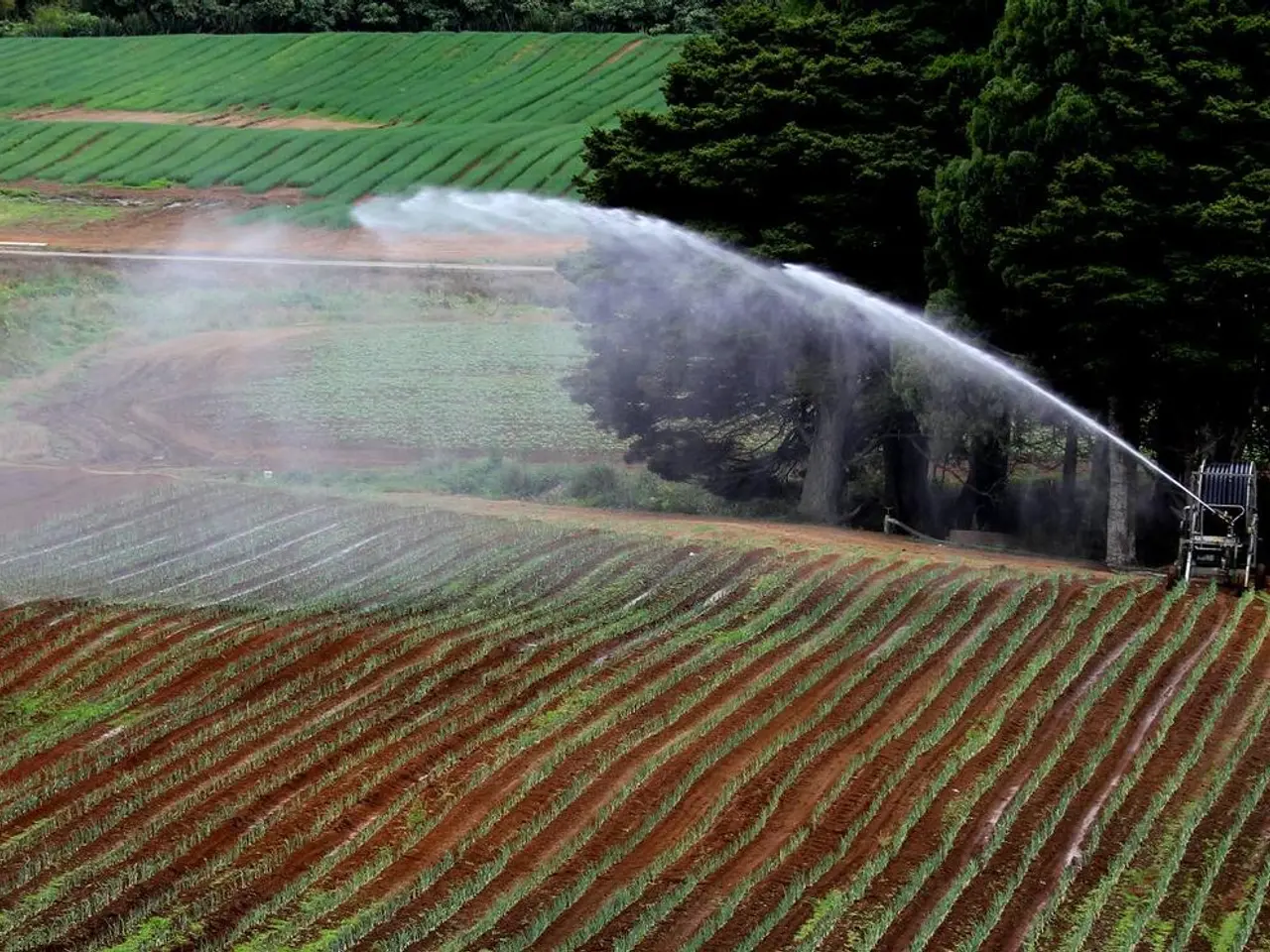Farmers Urged to Adopt Conservation Agriculture in Drought-Prone Areas
Farmers in drought-prone areas, particularly the Barind tract, are urged to adopt conservation agriculture practices. These methods aim to improve soil health, enhance climate resilience, and reduce water usage. Experts like Israil Hossain promote these techniques to combat climate change and boost productivity.
At the core of conservation agriculture are reduced tillage, crop rotation, and mixed cropping. These practices help maintain organic matter on the soil surface, preventing erosion, and retaining moisture. This, in turn, improves soil structure and fertility. Retention of crop residues on fields further boosts soil health and conserves moisture, making crops more resilient to droughts.
Locally developed machinery, such as Power Tiller Operated Seeders (PTOS), aids early planting and precise seed placement. This technology reduces labour and fuel expenses, making farming more cost-effective. By adopting these practices, farmers can grow low-water-demand crops, adapt to erratic rainfall, and promote carbon sequestration.
Conservation agriculture is emerging as a vital solution to combat climate change in the Barind region. By adopting these practices, farmers can enhance soil fertility, improve climate resilience, and increase net profits. This leads to higher crop yields and reduced costs of labour, seeds, and fertilizers. Experts encourage farmers to embrace these techniques to sustainably grow crops in drought-prone areas.








